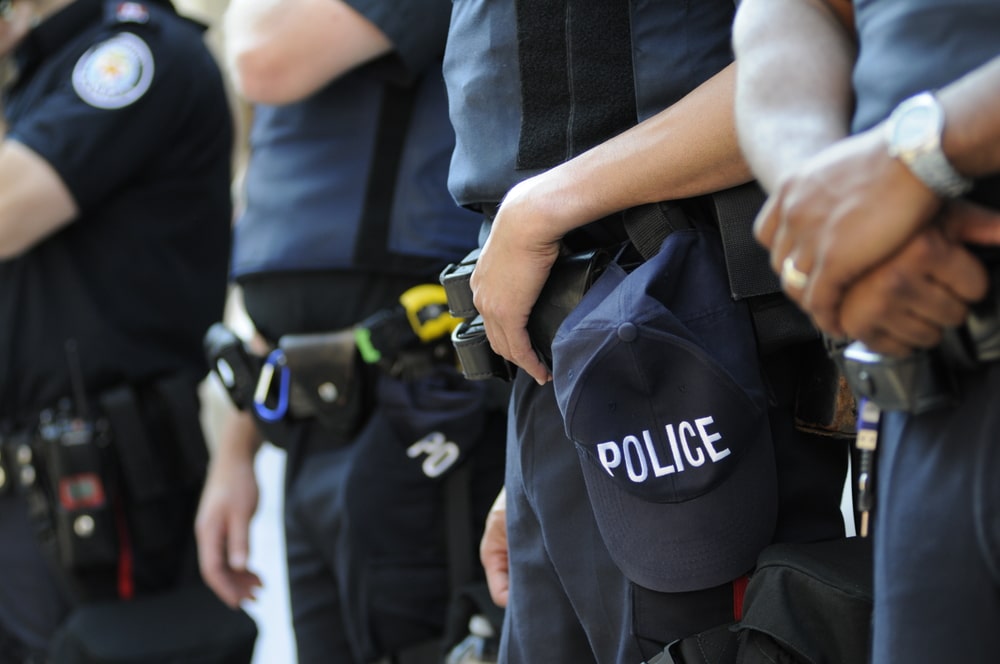Police accountability is a bipartisan issue. Don’t let it become a prop in our political theater
The House of Representatives recently voted on a joint resolution disapproving of a recently passed police accountability bill in Washington, D.C. — the Comprehensive Policing and Justice Reform Amendment Act.
While President Biden has promised a veto if it passes the Senate, the effort alone perpetuates a harmful myth: that police accountability is a partisan issue. In fact, many of the measures contained within the DC legislation — such as clearer use of force standards, robust data collection and transparency requirements, strengthening standards and training boards, and improving minimum standards — are commonsense policies that are often popular across the political aisle and with law enforcement.
These reforms are also not new, and have been adopted by red, blue, and purple states alike. The National Conference of State Legislatures (NCSL) found that state legislatures considered more than 4,500 police-related reforms between May 2020 and May 2022. This includes 25 states that limited the use of neck restraints — including conservative states such as Florida, Texas, Tennessee, South Carolina, and Nebraska — and 26 states that passed laws related to data collection and transparency. Such policies should especially be championed — not shied away from — by conservatives and Republicans who rightly endorse responsible, effective government that respects the rights and liberties of their constituents.
Despite frequent media narratives to the contrary, there is strong bipartisan support for accountable policing, including on-the-ground conservative and Republican support. At a recent meeting on criminal justice at this year’s Conservative Political Action Conference (CPAC) in Virginia, polling showed that 85 percent of Republican voters agreed with both supporting law enforcement and holding them accountable for excessive use of force.
Leading national conservative and right-of-center organizations reflect that commonsense approach and have taken the lead in the call for smart policing policies. This includes Public Safety Solutions for America’s statement of principles on combatting violent crime signed by nearly two dozen right of center and law enforcement leaders, a recent position statement from Prison Fellowship, which works largely with conservative Christians across the country, and R Street’s public safety agenda for 2023 mayors and other local elected leaders.
Indeed, we can and should simultaneously back law enforcement, support efforts to hold them accountable, and promote effective public safety strategies. Critically, police accountability and public safety go hand-in-hand. For police officers, the most valuable assets are not weapons or technology, but having the trust of those who live in the community they serve. When community members have trust in their officers, they are more willing to report crimes, come forward as witnesses and cooperate with investigations. The result? Safe streets for the public and for the police.
Policing is a high-risk profession, and a lot is asked of officers. There are countless brave and honorable people who serve our communities night and day but know the damage that can happen when the few who engage in corruption, excessive force, or other misconduct bring disrepute to their entire city. For the sake of good government, we need measures in place to support good and fair policing.
Police accountability and public safety are bipartisan issues that are too serious to be used either for political theater or the narrow goals of powerful special interest groups. Legislatures across the nation should continue to make this clear by following the evidence and rejecting efforts to put the brakes on common sense police accountability policies that will make our communities safer and more prosperous by building trust.
At the federal level, Congress should stay in touch with the views of mainstream Americans who understand that public safety and trustworthy policing go together. Not only does the effort to overturn the District of Columbia’ police accountability bill fail to act in response to recurring challenges by the few cops who don’t play by the rules, it instead embraces the wrong kind of policing that obscures transparency, undermines legitimacy and harms public safety. We can do better and reject the measure that overturns the will of the residents of the District of Columbia.





